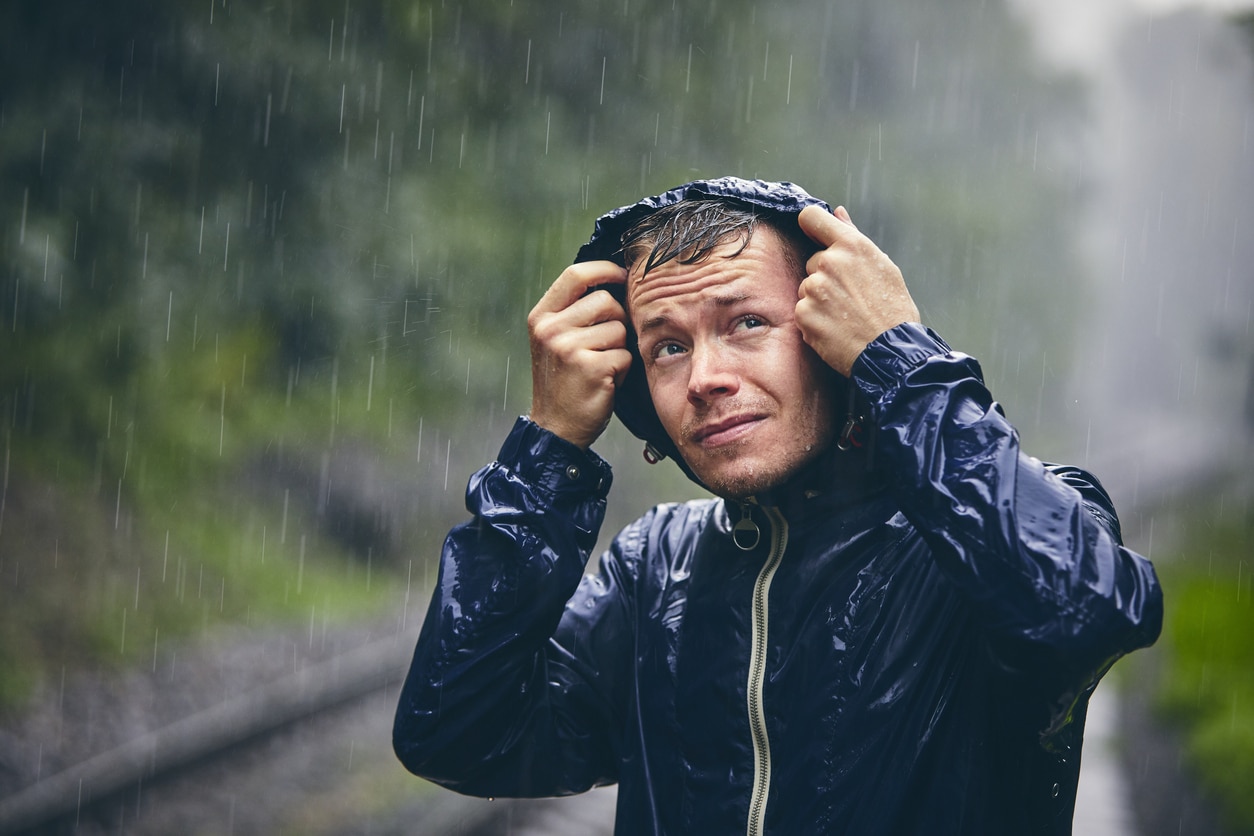Fall is officially here! And with fall comes cooler temperatures and a few rainy afternoons. While you’re pulling out your raincoat, umbrella and rubber boots, take some time to learn about how waterproof and water-resistant hearing aids can provide amplified sounds regardless of the weather.
How Waterproof Are Waterproof Hearing Aids?

You may have heard your phone, watch or hiking boots described as waterproof in the past. Unfortunately, the term “waterproof” doesn’t always mean something is entirely impervious to water damage. It’s often more accurately described as water-resistant, meaning the item can handle limited water exposure, like sweating, a rain splash or a brief accidental dip in the Seal Park Lake. However, it’s not designed to withstand complete submersion or prolonged exposure.
This distinction is critical to keep in mind—especially for sensitive electronics like hearing aids—because even if they’re labeled as waterproof, taking a lengthy dive into the lake without removing them could still cause damage.
How Can I Protect My Hearing Aids Against Water?
Investing in waterproof or water-resistant hearing aids is a great idea, but it’s still wise to practice water-safe hearing care. A few tips to keep in mind include:
- Remove your devices. If you’re going for a swim, remove your devices and place them in their case before you jump in.
- Dry off. After showering or swimming, take some extra time to dry off your hair and outer ears with a clean towel to prevent excess water exposure to your devices.
- Dry your devices. If your water-resistant or waterproof hearing aids encounter water, don’t panic. Wipe them off with a clean, dry cloth. Check your manual for instructions if you’re unsure about specific care information. If you notice a sound quality change, call your hearing aid specialist for a repair.
While waterproof or water-resistant hearing aids are a remarkable innovation, it’s still important to handle them with care. Think of waterproofing as a safeguard for unexpected mishaps—not an invitation to dive into the lake with your hearing aids. Enjoy the added protection, but continue to treat your devices with the care they deserve.
More than one in 10 U.S. adults live with hearing loss. To learn more about how waterproof or water-resistant hearing aids could improve your life with hearing loss, contact Hampton Roads ENT ~ Allergy today to schedule an appointment with one of our specialists.
